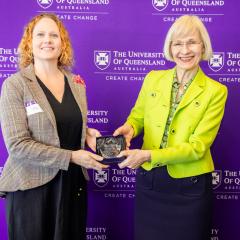The year is 2050. You sip your morning coffee while gazing out over the forest. The crickets are chirping, dew drops sparkle on the tips of the pine needles, and you tune in to the sound of a trickling stream nearby. But alas, it’s time to go to work.
The trees fade away before your eyes, replaced by your work calendar. Lots of meetings today. You open your interactive wardrobe and swipe through outfit combinations. They’ve been curated by your virtual stylist subscription – what a game-changer! You select something professional and settle in for the day.
Are you dreaming? Nope – you’re in the metaverse. You spend your day living, working, shopping, learning, and interacting, in the virtual world. You’re probably doing it all from the comfort of your couch in your favourite pyjamas. But what is happening outside? Could you really visit that forest if you wanted to? It’s 2050 after all… did we reach net zero?
Today (June 5) is World Environment Day, the United Nations day for encouraging worldwide awareness and action to protect our environment. With the boom of technology like the metaverse, artificial intelligence (AI), and virtual reality (VR), Contact wanted to know what impact these technologies could have on the world’s sustainability goals.
Will the replacement of tangible things for virtual alternatives help reduce the global waste problem? Could digital experiences allow society to overcome the behavioural barriers to addressing climate change? Or will this infrastructure and its energy consumption exacerbate the issues?
Contact put the question to UQ researchers: could technology like the metaverse and AI, bring us closer to a sustainable reality?
Dr Jennifer Yarnold, Research Fellow, Centre for Policy Futures - HASS
“Imagine no possessions.” I doubt John Lennon had virtual reality in mind when he penned his famous lyric, but certainly I believe that the metaverse and AI could create more sustainable futures.
First, and most obvious, would be a future based on the substitution from tangible to virtual things. This would reduce the damage to ecosystems, pollution and waste created from extracting resources and making goods, and their disposal at end of life. For example, if we are spending our time in the metaverse, do we stop purchasing so many real 'fast-fashion’ products?
Second, would be through greater efficiency. Already AI is being integrated into energy, food and production systems to better predict and distribute goods and energy from where they are produced to where they are needed – reducing the redundancies of human-based systems.
And third, in an oddly paradoxical way, could be that through the metaverse we find ways to better connect in with, appreciate and even regenerate natural systems. For instance, there is growing demand for carbon, biodiversity and nature-based offsets.
What if fund managers, sustainability managers and regular people like you and I could choose precisely where in the world and what type of offset we wanted to purchase – say, the planting of a tree in Borneo, a mangrove in Fiji, or a coral transplanted to restore part of the Great Barrier Reef?
Perhaps in the metaverse or with AI, we could visualise where our tree, mangrove or coral is planted, monitor it as it grows, see how it’s improving the surrounding ecosystem and biodiversity, and gain real-time information on how much carbon has been captured or how the water quality has improved. That would be pretty cool.
Like all technologies, though, the future will depend on how and for what humans prioritise to use it. Unless, that is, AI evolves – like humans – where the main objective is survival, but – unlike humans – realises the necessity to sustain the planet which enables that survival.



